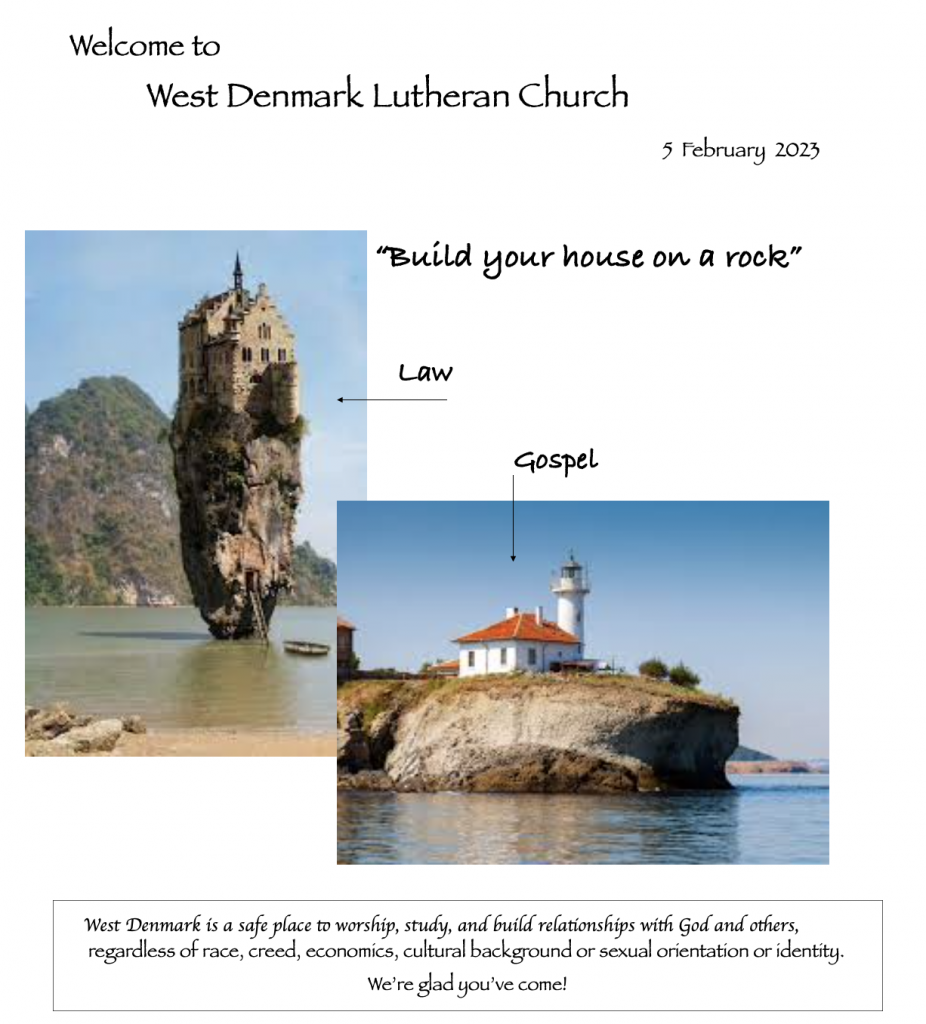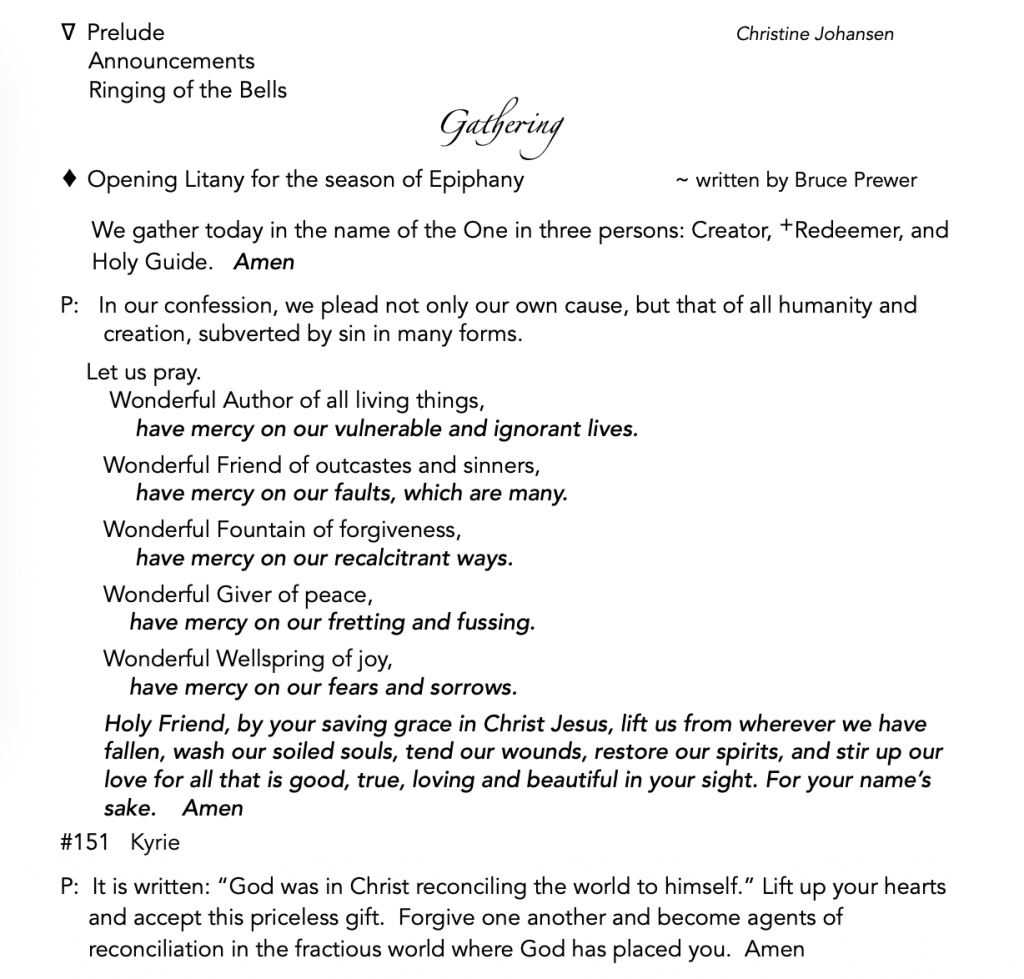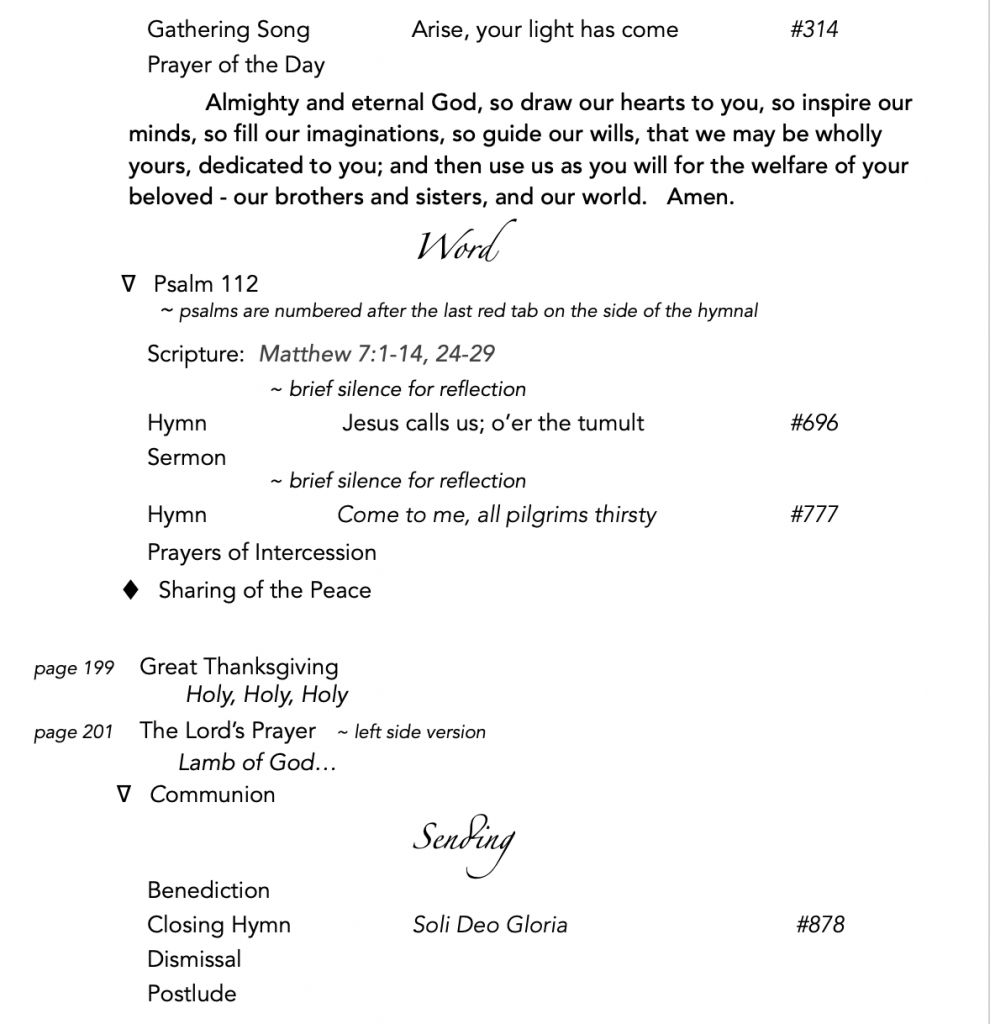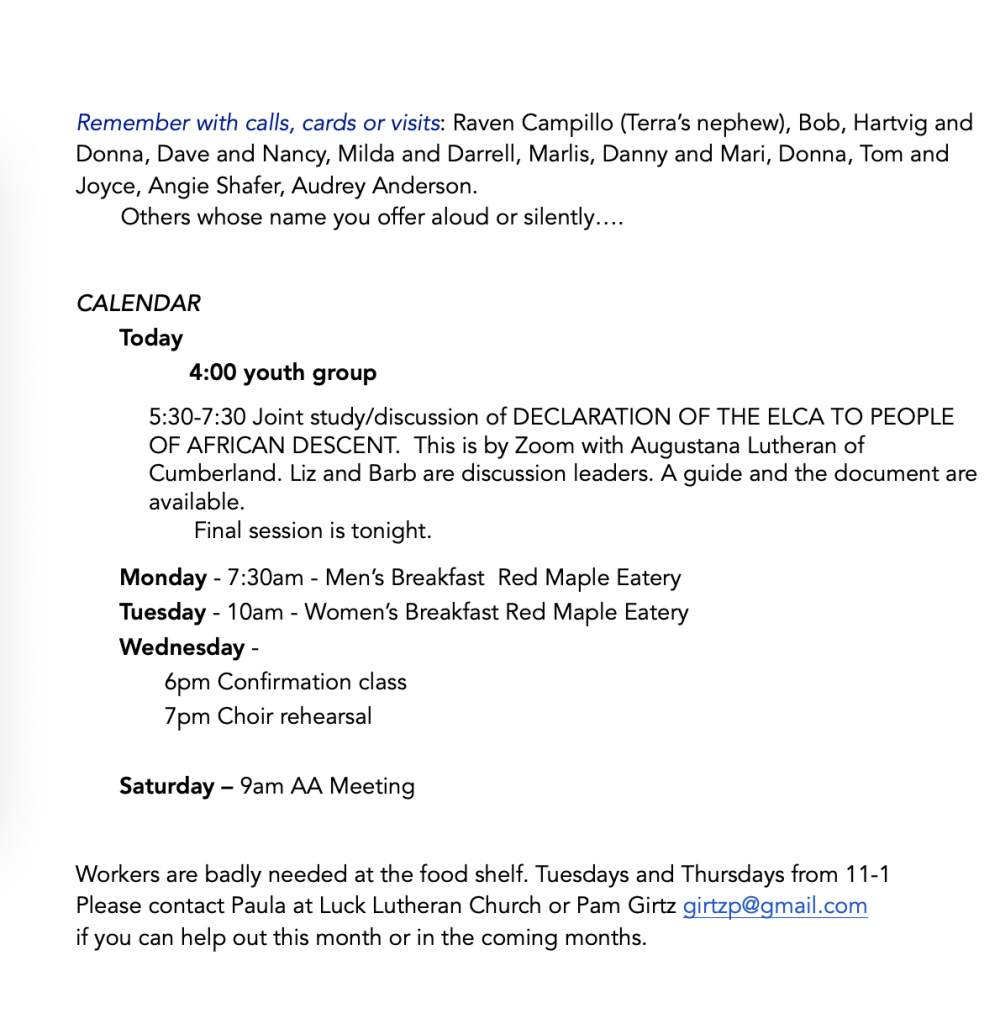Audio Recording



Matthew 7:1-14, 24-29
“Do not judge, so that you may not be judged. For with the judgment you make you will be judged, and the measure you give will be the measure you get. Why do you see the speck in your neighbor’s eye, but do not notice the log in your own eye? Or how can you say to your neighbor, “Let me take the speck out of your eye,” while the log is in your own eye? You hypocrite, first take the log out of your own eye, and then you will see clearly to take the speck out of your neighbor’s eye.
Do not give what is holy to dogs; and do not throw your pearls before swine, or they will trample them under foot and turn and maul you. Ask, and it will be given you; search, and you will find; knock, and the door will be opened for you. For everyone who asks receives, and everyone who searches finds, and for everyone who knocks, the door will be opened.
Is there anyone among you who, if your child asks for bread, will give a stone? Or if the child asks for a fish, will give a snake? If you then, who are evil, know how to give good gifts to your children, how much more will your Father in heaven give good things to those who ask him!
In everything, do to others as you would have them do to you; for this is the law and the prophets.
Enter through the narrow gate; for the gate is wide and the road is easy that leads to destruction, and there are many who take it. For the gate is narrow and the road is hard that leads to life, and there are few who find it.
Everyone then who hears these words of mine and acts on them will be like a wise man who built his house on rock. The rain fell, the floods came, and the winds blew and beat on that house, but it did not fall, because it had been founded on rock. And everyone who hears these words of mine and does not act on them will be like a foolish man who built his house on sand. The rain fell, and the floods came, and the winds blew and beat against that house, and it fell—and great was its fall!”
Now when Jesus had finished saying these things, the crowds were astounded at his teaching, for he taught them as one having authority, and not as their scribes.
“Do not judge, so that you may not be judged. For withthe judgment you make, you will be judged, and the measure you give will be the measure you receive.”
In Confirmation class last week we began looking at the Lutheran understanding of Law and Gospel – how the very same teaching or law can both convict and comfort. Today’s readings offer good examples of that dynamic. The judgement with which you judge will be the criteria used in judging you. The measure of generosity, kindness, arrogance, anger you give out will be what comes back to you.
Is this good news, comforting news? Or is it time for a fearless moral inventory and change?
Judging others is inherent to our nature. It’s wired into our survival mechanism – needing to know in an instant if we should fight or flee.
But that instinct has been exploited. Within the public political arena, judging others (dismissively, of course) is part of the game and spectacle. Judging others and how closely they align with our ideals or standards or ways is how we form friend groups and congregations. But the judgment that forms inclusion, by definition, is a move to alienate others (Law and gospel). And judgment is more often about separating sheep from goats. It might be based on racial differences, skin tone, clothing styles, body shape, sexual identification, educational level, occupations, income, visible manifestations of ideologies, gender, piercings and tattoos, what we feel is appropriate dress or behavior … the list is endless, really. The result is the assumption that for various and obvious reasons, we are better than them.
We all take part in some amount of instant judging. We can’t help it. It is a natural, seemingly innocent thing to do. Sometimes we are conscious of it, maybe enjoying the diversity of lifestyles or cultural expression evident at a big event or trip to the cities for those of us from small villages. We might call it ‘people watching.’ But I suspect we aren’t looking for the good, the kind, the Christ in them. I suspect it is the differences that catch our eye, and differences are always targets for judgment. We form an idea of an individual’s worth or a backstory based on a glance. If we were honest with our inner selves, we’d call it ‘people belittling’, not people watching. It’s not neutral. Sometimes judgments ride under the radar of awareness, but we feel them or react to them. Fear, wariness, revulsion, attraction, coveting, compassion based on what we see – while knowing nothing about the individual or group.
Our treatment of others summarizes the human dynamics of the first law of thermodynamics: The Law of Conservation of Energy that states that energy can neither be created nor destroyed, but is transferred, changed from one form to another. Behaviors, attitudes, prejudices, treatment of others don’t dissipate into a void. They land on another person, are absorbed, felt, engaged, recycled, transferred from person to person. This contributes to the systemic nature of racism, misogyny, and bigotry. The measure you give is the measure you receive… do unto others as you would have them do unto you… What goes around, comes around.
Our interactions are marked by this mutuality, this inability to disconnect; and they can contribute to the way of empire or they can contribute to the way of the kingdom of God. ‘You shall love your neighbor as yourself” goes back a very long way in human history and in relationship to God – and it hasn’t gotten any easier. In fact, it feels like it is getting worse. Judgment is quicker and more malevolent, forgiveness and compassionate curiosity hardly in the picture.
The center of this long section of Jesus’ teaching is where we find the Lord’s prayer in which we ask God for what we need to be a people who live into the ethics and ethos of God’s will and way. It asks for simple and not so simple things: daily bread, forgiveness of our debts and trespasses, a plea not to be tested or tempted, but to be delivered from the evil that lures us. We ask that God’s kingdom, God’s reign, break in to our present time, for it to be enacted, behaved here, among us.
Ask, and it will be given you; search, and you will find; knock, and the door will be opened for you.(Yes! Even for you. And even for them – those despicable, untrustworthy, abusive, ignorant, judgmental ‘others’.) Indeed, for everyone who asks, receives; and everyone who searches finds; and for everyone who knocks, the door shall be opened.’
God will welcome you. God will welcome those whom you have judged. God will welcome those who have judged you! This isthe hospitality of the kingdom of God. Everyone who searches, who seeks, who knocks at the door shall be admitted. Not because we have judged them worthy. But because God has claimed a presence, proclaimed a promise, in their lives, too, as in your life.
For is there anyone among you who, if your child asks for bread, would instead give them a stone? Or if the child asks for fish, would you substitute a snake? Of course not.
If you then, who are … human, know how to give good gifts to your children, how much more will your Father in heaven give good things to those who ask!
God’s ways are not our ways, God’s thoughts, judging, forgiveness, loving, mercy, joy… are not our ways.
“Everyone then who hears these words of mine,” Jesus said, “and acts on them will be like a wise one who builds their house on rock.” Where God’s will is done, where God’s ways are practiced, where the teachings of Jesus are enacted, there the kingdom of heaven draws near. The Lord’s prayer is talking about behaving more than believing the kingdom of God. And when we behave it, we begin to see it.
‘Forgive us our trespasses, Merciful God – our slanders, our arrogance, entitlement, hubris — as we forgive those who in like fashion judge us, and grant that we may do unto those others as we would have them do unto us. Lead us not into the temptation of loving ourselves without equal regard of our neighbor, but deliver us from such evil… Judge us, good Lord, with a lover’s compassion. For we are all … the creatures, the habitats, our neighbors, ourselves, those disenfranchised, despised … we are all all yours.
